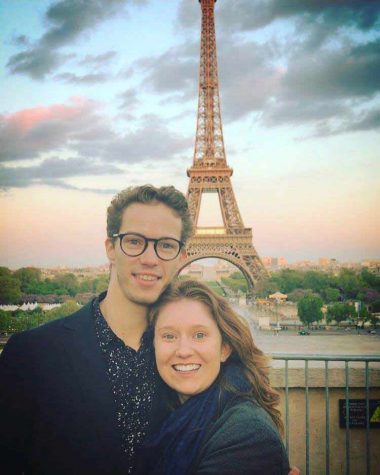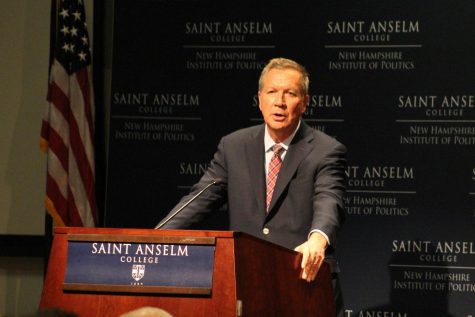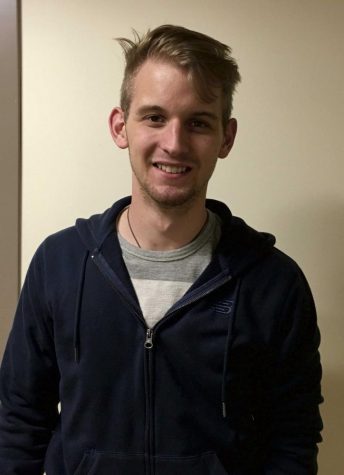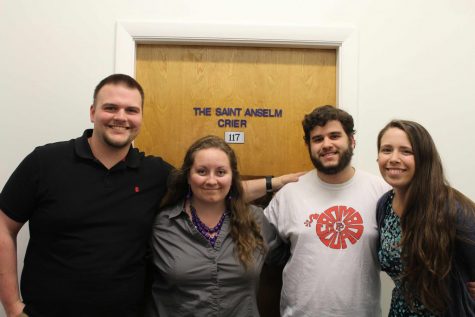The cult of scientific illiteracy
March 15, 2017
The Earth is flat, and NASA faked the 1969 moon landings, according to well-known rapper B.o.B. He declared this opinion last year, citing the inability to see the Earth’s curvature from the horizon as evidence for this declaration. Renowned astrophysicist Neil Degrasse Tyson responded to his bizarre claims, pointing out that you have to be up in the Earth’s atmosphere to see its curvature – a response that only further inflamed conflict betwixt them.
The rapper isn’t alone in his beliefs; in fact, he lines up with the real-life Flat Earth Society founded by Charles Johnson. He’s also not the only American to have misconceptions about the solar system; in 1999, Gallup polled that 18% of Americans believed the Sun revolved around the Earth. As of 2014, the National Science Foundation reports that number is up to 26%.
In fact, scientific illiteracy (or ignorance about science) is currently a growing problem in American society; anti-vaccine groups, climate change deniers, homeopaths, creationists, NASA conspirators, and generally scientifically illiterate citizens seem to have more members and sympathizers in their ranks each day. Despite the fact that evolution, the shape of the earth, and the benefits of vaccines are well-grounded in centuries of scientific fact, more and more Americans seem keen to stand for pseudo-scientific ideas.
I argue that we must dramatically improve science education in American schools, public and private, lest we be seduced by the cult of scientific ignorance that is gaining traction in the United States. However, before my case can be properly made, it should be noted how illiteracy about science is becoming widespread.
There are three main ways scientific illiteracy grows, firstly because people often hear bad information from someone or something they trust, and spread pseudoscience around in hopes of helping others. Human beings are more likely to believe the story of a trusted friend about the “dangers” of vaccines rather than, say, the monologue of a doctor they don’t know. We also over-inflate risks of something bad happening, so we are willing to not vaccinate our child in fear of the minuscule chance the vaccine kills them. As a result of these two psychological factors, parents like the child of a young Hoosier chose not to vaccinate their child; in 2012 he contracted chicken pox, sparking an outbreak that resulted in 80 other people getting sick in his county.
Second, people will spread scientific misinformation, pseudoscience, or simply outright quackery because it benefits their agenda. Tobacco companies and oil tycoons have been spreading scientific falsehoods about the harmful links between their products and the health of people/the environment ever since the 1950’s-in fact, they’ve often used the same PR and “research” firms for these purposes. These entities have worked together to disavow links between smoking and cancer, produce doubt about the health threats of smog, and to deny fossil-fueled climate change.
While large companies spread scientific ignorance to protect profit, fundamentalist religious organizations spread pseudoscience to promote their own dogma. Answers in Genesis is a Protestant, Fundamentalist ministry that has a multi-million dollar creation “museum” and a full-size Noah’s ark replica. Bill Nye the Science Guy paid a visit to this ark, remarking that on the third deck of the ship a third of all the science exhibits were simply “wrong”. The organization that owns this $102 million dollar ark, built with tax breaks from the state of Kentucky, preaches a literal interpretation of Genesis, blames evolution for all “moral decay” (including genocide), and promotes “creationism” (read: literal take on Genesis) as a “scientific” alternative to “man’s ideas” (read: proven science) of the natural world. Many follow these ideas Answers in Genesis espouses-including the current Vice President of the United States.
Most of us don’t fit into either of the two categories I mentioned above; instead, the third reason is that we no longer see the importance of being fully scientifically literate. I can sympathize with this to an extent; science is often hard, and seems to fall into the same category of usefulness in our lives that algebra falls into.
However, we live in a world where doctors’ diagnoses, complex policy debates, and environmental issues increasingly affect our lives. Studying evolution helps us to understand hereditary diseases, and to predict the evolution of lethal diseases. The policy of vaccination has all but exterminated illnesses like German measles, which infected 12 million Americans and killed 2,000 children in 1964-as of now, there have been 9 reported cases.
To keep what author Isaac Asimov dubbed the “cult of ignorance” (which is describe above) at bay, we must dramatically improve science education in our schools, and continuously inform ourselves in areas of science where we are ignorant.










